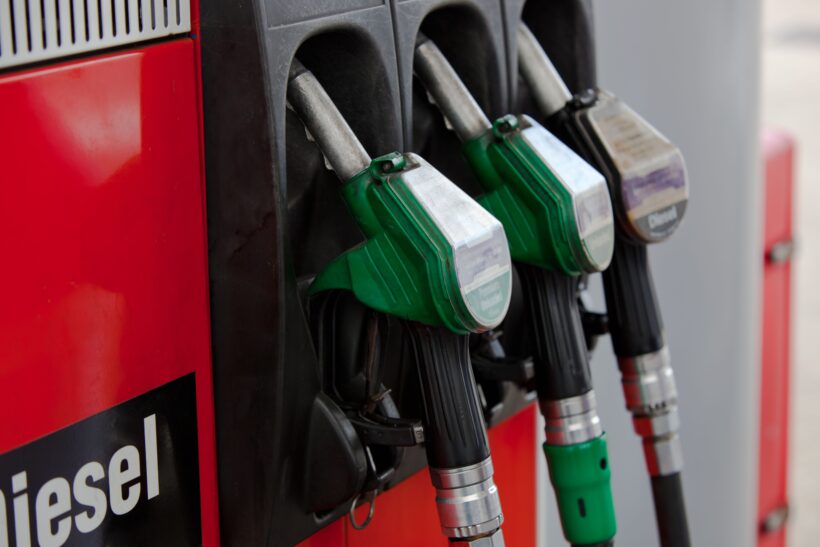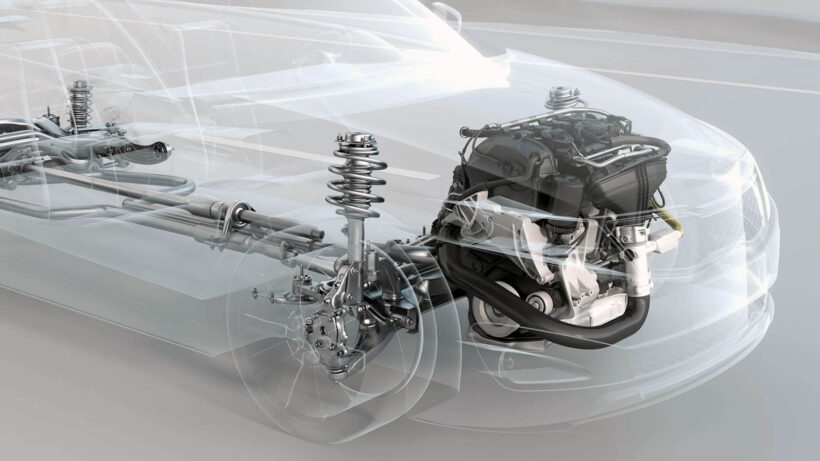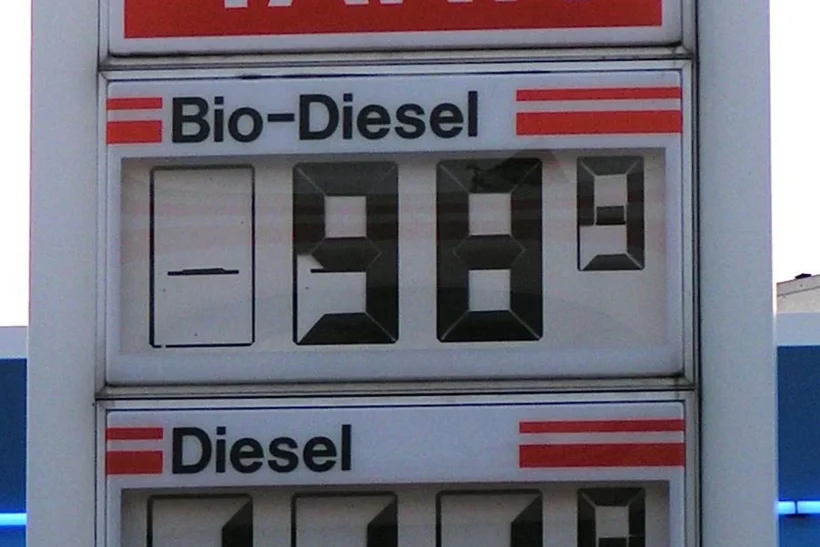Gasoline-powered engines may be the most common when it comes to automobiles, but it’s likely you’ve heard at least some mention of diesel-powered engines and the fuel that powers them. The term “diesel” is often preceded by words like “powerful” and “strong”—and for good reason. But as with any fuel, there are pros and cons to this power source. Feeling time-strapped and unschooled on diesel fuel? Don’t worry, that’s why we’re here. In this blog post, we will break down the ins-and-outs of diesel fuel so that you can make an informed decision as to whether or not it fits your needs. From its history to its consumption, let’s dive in and learn everything we need to know about this powerful fuel source.
Diesel fuel is composed primarily of hydrocarbons derived from crude oil. Truck vehicle fleets typically use diesel for fuel. Depending on its intended use, it typically contains additives and certain compounds to improve performance and prevent engine wear and corrosion.
What is Diesel Fuel?

Diesel fuel is a type of fuel derived from petroleum that’s used in most modern diesel engines. It serves as the main source of power for vehicles like trucks, buses, and trains, as well as providing energy to industrial machinery and electrical generators used in the production of goods. Diesel is a common fuel source because it provides units with more torque and horsepower due to its heavier composition and higher cetane number than gasoline, meaning it helps engines run smoother and has less of an impact on the environment.
The use of diesel fuel has stirred debate among environmentalists. On one hand, diesel is made from finite resources that contribute to further depleting global petroleum reserves when burned. On the other hand, diesel can be derived from renewable sources such as biodiesel or vegetable oil, which emits fewer pollutants when burned than traditional fossil fuels. Despite advancements in biodegradable fuels, the majority of vehicles today still rely on a non-renewable resource which results in some environmental concerns.
No matter what side of the argument you’re on, there’s no denying that diesel is an important factor in global transportation and industry. Its combustible properties make it an increasingly attractive option for powering cars and other machines, while its affordability keeps it present in technology today. To understand more about these combustibility benefits of diesel fuel, let’s take a look at the next section: Combustible Properties of Diesel Fuel.
Combustible Properties of Diesel Fuel
The combustible properties of diesel fuel make it a powerful source of energy. Diesel has a higher flash point than gasoline, meaning that it requires an elevated temperature to ignite; this makes it safer and easier to store than gasoline. Additionally, diesel’s volumetric energy density can be up to 30% higher than gasoline, providing more potential power for the same amount of fuel.
The chemical makeup of diesel is also important when it comes to its combustion process. The hydrocarbon molecules found in diesel fuel tend to break down into smaller molecules during combustion, releasing energy as they do so. Furthermore, diesel has a low sulfur content compared to other fuels, making it less likely to produce air pollution.
Despite the advantages described above, there are some drawbacks associated with the combustible properties of diesel fuel. Emissions from engines burning diesel are typically higher in oxides of nitrogen and particulate matter than those burning other fuels, therefore resulting in higher levels of air pollution. Additionally, while diesel has a higher flashpoint which helps with safety and storage compared to gasoline, it can still be dangerous if not handled correctly; this is particularly true when combined with oxygen.
For these reasons and more, a thorough understanding of the combustible properties of diesel fuel is important for anyone handling or using it on a regular basis.
Finally, it is worth noting that both the combustible properties and air pollution associated with diesel fuel can be minimized through the use of modern technologies such as exhaust gas recirculation (EGR) systems and particulate filters.
Now that we understand more about the combustible properties of diesel fuel, let’s take a look at how it powers our world in the next section – “Diesel Engines and Automobiles”.
Main Summary Points
Diesel fuel is a powerful source of energy due to its higher volumetric energy density compared to gasoline. Though diesel has lower sulfur content than other types of fuels, it does emit more oxides of nitrogen and particulate matter than other types of fuel, requiring the use of modern technologies such as EGR systems and particulate filters in order to reduce emissions. Understanding the combustible properties of diesel is important for anyone handling it or using it regularly.
Diesel Engines and Automobiles

Diesel engines and automobiles have grown in popularity over the years, providing drivers with increased power, increased efficiency, and improved torque compared to conventional gasoline engines. Though diesel engines are more expensive than gasoline-powered versions, they often produce greater fuel economy that can quickly make up for their initial cost.
Diesel engines tend to be larger, heavier and generate higher torques than regular gasoline engines which makes them better suited for heavy-duty purposes such as hauling large loads or towing. That being said, diesel vehicles have become rather common in the average household due to the previous benefits mentioned and a wide selection of vehicles offered by automakers. Diesel cars now can be found amongst luxury and sports vehicle manufacturers such as Mercedes, BMW and Volkswagen just to name a few providing an option for those looking for enhanced performance capabilities from their automobile.
On the other hand, debates against diesel cars are well known with the primary focus being on issues of emissions. Studies have shown that particulate matter and nitrogen oxide produced by diesel engines is higher than their gasoline counterparts creating issues in air quality of cities where large numbers of people choose to drive diesels. This has caused many governments around the world to impose strict emissions regulations on new diesel powered vehicles as a method of reducing roadside pollution.
No matter what stance one takes on owning a diesel vehicle, it’s clear that they present unique benefits that cannot be found in most other types of autos which leads us into the next section: Benefits of Diesel Fuel for Automobiles.
Benefits of Diesel Fuel for Automobiles

Today, diesel engines are increasingly common in passenger vehicles as the fuel type’s efficiency and power makes them an attractive option. Although diesel fuel can be more expensive than other fuels, they bring numerous benefits to drivers.
First, diesel fuel is known to be more efficient than gas engines. With new advancements in manufacturing technology, diesel engines offer a higher compression ratio that leads to more power output. This also allows for more efficient burning of fuel. Diesel fuel also contains more energy per volume and as a result, diesel engines require less of the fuel for a similar output to gasoline engines. This leads to substantial savings over time for drivers relying on the fuel type for their vehicles.
In addition to diesel fuel’s efficiency, the energy output from this type of engine is much higher than that of other engines. Diesel provides greater torque output and increased reliability up against other types of fuel used for vehicular purposes. This higher energy output often translates into better maneuverability and performance behind the wheel, something many motorists look for when purchasing a car or truck.
Finally, diesel fuel burns cleaner than gasoline due to the lubricants present in it which help reduce emissions of pollutants like nitrogen oxides (NOx). While this isn’t necessarily applicable in older models of automobile with diesel engines, modern cars tend to reduce emissions by around 50%. However, there is still some debate around how much environmental damage is caused by emissions produced by running a diesel engine; it is important for drivers to consider this when making their final vehicle choice as well as following proper maintenance procedures indicated by their vehicle’s manual.
Benefits aside, nowadays higher-priced diesel tends to cost more than regular unleaded gas on average, creating an even larger barrier of entry when considering a purchase of a car model with a diesel engine under the hood.
In conclusion, when considering advantages versus drawbacks, the benefits that come along with using diesel fuel in automobiles are undeniable: increased efficiency leading to long-term savings combined with better performance and improved environmental responsibility make it a viable option for many drivers looking for powerful and efficient ways to get from one point to another. The next section will explore further the emissions produced via running engines powered by diesel fuel and explore potential ways in which these emissions can be reduced.
- Diesel fuel is a combustible liquid composed primarily of hydrocarbons ranging from C10 to C19.
- According to the American Petroleum Institute, diesel fuel contains 12–15% more energy than gasoline per gallon.
- In the United States in 2020, the average price for a gallon of diesel fuel was $2.63, with prices varying by region.
Burning and Ignition of Diesel Fuel
The burning and ignition of diesel fuel involve a more complex process than other types of fuel sources. It is ignited by compression, rather than spark ignition. The diesel engine has larger cylinders with pistons that compress the air to much higher pressures than other combustion engines, creating a hot-spot inside the cylinder which ignites the diesel fuel once its injected. This ensures that no spark or heat source is necessary for ignition.
The advantages of this method of ignition over spark ignition are quite substantial. With no need for electricity, it is easier to maintain and requires less maintenance overall – resulting in fewer costs associated with repairs. An additional advantage is that the high compression makes efficient use of the fuel, allowing it to achieve high power outputs while still being relatively fuel efficient.
On the other hand, some argue that a spark ignition is preferable since it combusts the fuel quicker and more uniformly. They also claim that spark ignition provides better fuel atomization which leads to more complete combustion of the fuel thus producing more power per unit of fuel used.
Overall, the advantages of using compression for combustion still outweigh spark ignition when looking at the whole picture– providing both high power and efficiency with lower maintenance needs and costs associated. This concludes our section on Burning and Ignition of Diesel Fuel, now let’s move on to discuss Improved Performance and Fuel Economy in greater detail.
Improved Performance and Fuel Economy

Diesel fuel offers improved performance and fuel economy relative to many other automotive fuels, making it a wiser investment for car owners. Diesel engines burn fuel more slowly than gasoline engines, making them more efficient and reducing the amount of emissions they produce. In addition, since diesel engines use larger cylinders and stronger components than gasoline engines, they are generally able to generate more torque with less fuel, resulting in slower acceleration but better power over long distances.
This enhanced efficiency results in longer engine life and fewer trips to the pump as well. On average, diesel-powered vehicles consume 20-35% less fuel than similar gasoline vehicles, making it significantly more cost effective in the long run. Furthermore, since diesel engines don’t require spark plugs and typically last longer than gasoline engines, it is also a more cost-effective choice for those who own their vehicle for a number of years.
However, there is an additional cost associated with diesel fuel – the price per gallon tends to be higher and can fluctuate significantly depending on the season and location of purchase. Additionally, diesel vehicles historically have had high initial purchase prices, though this has become less notable as diesel cars have become more popular in recent years. Thus, for those looking for an immediate return on investment, gas powered cars usually win out due to lower up-front costs.
Despite this disadvantage in price, when looking at overall performance and fuel efficiency across a longer period of time by factoring in repair costs and ongoing maintenance needs – diesel-powered vehicles represent an attractive option.
These advantages make diesel an increasingly popular choice with consumers who want improved performance and greater fuel economy – leading into the next section which will delve into Alternative Fuels to Diesel available today.
Alternative Fuels to Diesel

Alternative fuels, like propane and bio-diesel, are growing in popularity to those interested in replacing traditional diesel. Propane, a common alternative fuel for automotive applications, is extremely efficient compared to diesel and has low emissions, making it a great option for those who place a priority on green living. In addition, propane has been found to cost around 30% less than diesel in some cases.
Bio-diesel, while not as commonplace as propane, has recently made an impact on the diesel market due its sustainability and renewable properties. Unlike traditional fuel sources like crude oil (which powers diesel), bio-diesel is produced from vegetable sources like soybeans or canola seeds. For this reason, many view bio-diesels as much more environmentally friendly because they help prevent global warming issues that arise from burning fossil fuels.
Despite the potential benefits of alternative fuels to diesel, traditional diesel still weighs heavily on most discussions concerning fuel sources. This is because modern diesel engines have become much cleaner and more efficient in recent years due to new advancements in technology so that they no longer release toxic levels of exhaust fumes into the environment. Thus, the use of traditional diesel may be more attractive for the peace of mind it brings — there’s no need to worry about any potentially unknown side effects from using these alternative fuels.
However, when considering powering vehicles with alternative fuels such as propane or bio-diesel instead of gasoline or conventional diesel fuel, consumers must also weigh in other factors such as availability and cost. While these may offer some ecological advantages over conventional fuel sources, they may also be difficult to find and expensive options which limit their practicality.
Regardless of how one feels about alternatives to traditional diesel fuel, it is clear that further research and development needs to be done before they can become a viable option for powering automobiles. With this said, it is important to consider all sides when assessing the pros and cons of diesel fuel before making a decision regarding what type of fuel source best suits your needs and lifestyle. To do this we will explore the complexities of traditional diesel fuel in the next section: “Conclusion: The Pros and Cons of Diesel Fuel”.

